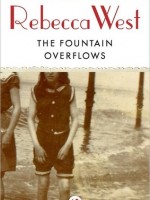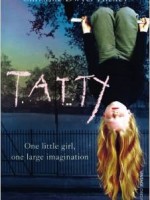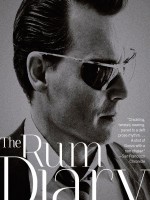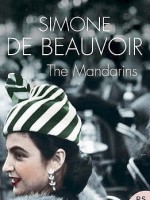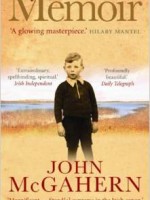 Running for the Hills: A Family Story
Running for the Hills: A Family Story
General Fiction
John Murray; New Ed edition

Ok, ok. So I gave this book 5 out of 5, and was greeted with gasps of open-mouthed horror and amazement… Judging by the praise Horatio Clare’s childhood memoir has garnered in reviews since its publication, there are lots of people out there who agree with me – unfortunately, none of them are in this bookclub!
In my defence, my attraction to this book, and the life it describes, is completely tied to the way in which it mirrors my own (much, much less impoverished and isolated) childhood years. In the 1980s, at the age of six I moved with my parents and younger sister from a housing estate in Dublin to a rural idyll in Kilkenny, complete with hens, goat, hayfields and ambitions of self-sufficiency. My personal memories of the next ten years certainly coloured my reading of this book: I loved the anecdotes, the mishaps, the neighbours and the adjustments that had to be made as the Clare family learnt to sheep farm from scratch. v Yes, there were moments where I thought “I don’t need to hear any more about the bloody sheep…” and yes, there are parts of the book that worked less well than others, but I forgave Clare all because I found his portrait of childhood gripping; the love-story to his mother that the tale eventually becomes, touching; and many of the stories he has to tell downright, laugh-out-loud hilarious.
It’s not going to be everyone’s vat of sheep-dip, but that’s ok, for me it did exactly what it said on the tin. ![]() 5/5
5/5
Synopsis
One summer’s day in the late 1960s two young Londoners fell in love with a hill farm in South Wales. They had almost no money, no idea about sheep, and their marriage was uncertain from the start.” “Their new home was a mile up the wild mountain, one end dug into its damp flank. It was ancient, cold and unbelievably primitive, with a view like a prospect of Africa. On a fair day it was paradise.” “But it was a working farm, cut off from the world and condemned – they found out, after they’d bought it – as ‘unfit for human habitation’.” This is the story of a passionate adventure; it is also the biography of a partnership, a portrait of an extraordinary way of life and an account of a bewitching childhood. From memory, conversations and the diaries of his now-separated parents, Horatio Clare reconstructs their relationships with each other and their mountain farm, and tells the story of his astonishing upbringing. At the fore is his mother, a wilful romantic, who chooses to make a life on the mountain single-handedly, and to raise her children there. Running for the Hills is a memoir of love and struggle in a remote and magical place.
Score awarded by Bibliofemme: 3 out of 5
What the other femmes had to say
 “A well written yawn, not for me at all. However, I will send it on to my sister who has just found herself landed in the middle of Galway on a sheep farm.” 2/5
“A well written yawn, not for me at all. However, I will send it on to my sister who has just found herself landed in the middle of Galway on a sheep farm.” 2/5
